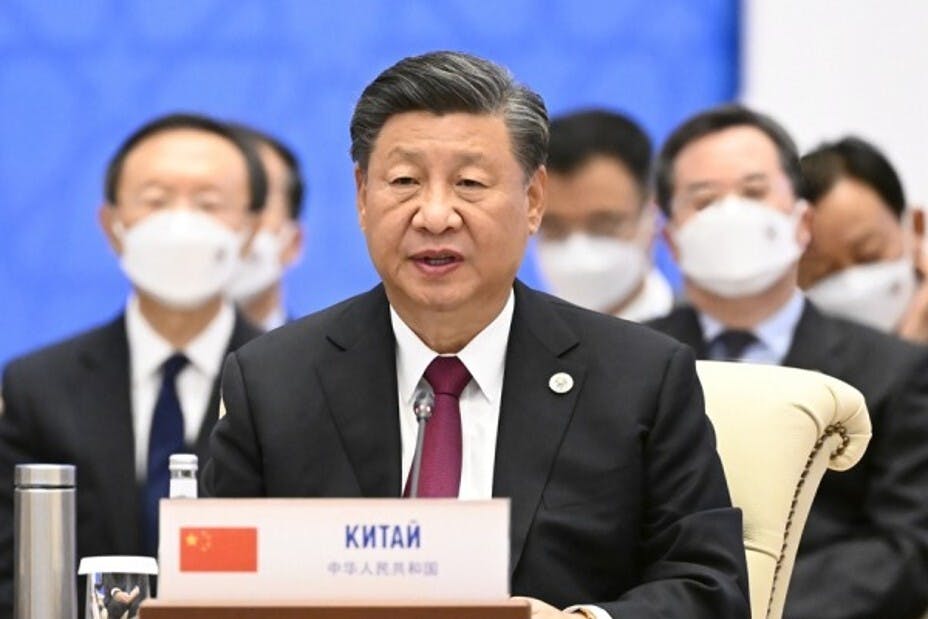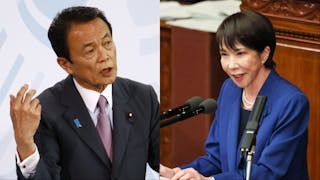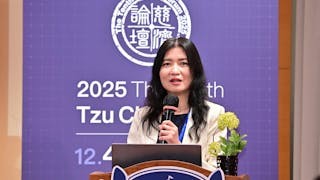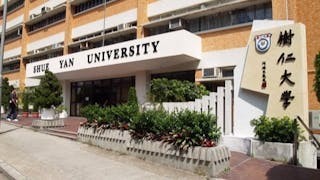從9月16日中國國家主席習近平在上海合作組織成員國元首理事會會議上的重要講話來看,中國不僅高度重視上合組織,而且闡釋了對國家和地區安全的關切和戰略。
強調平等對話 塑造仲裁者角色
首先,習近平主席發表了重要的立場講話,強調政治互信、互利合作、平等相待、堅持開放包容和堅持公平正義。
習近平關於堅持各國不分大小、國家平等相待這一點尤為重要,這也許是俄羅斯總統普京表示理解中方對俄烏衝突的「擔心」但高度評價中方的「平衡立場」的原因。
一些專家對中方的立場感到奇怪;儘管如此,中國的立場仍然非常一致。一方面,中國在評論俄烏衝突時並沒有採取高調的態度,因為新華社關於習近平主席9月15日與普京會晤的報道並沒有真正提及中方的所謂「擔心」。然而,習近平與普京在會晤中,可能會提出中國對大小國家之間對話重要性的「關切」,暗示中國希望看到俄羅斯和烏克蘭之間的和平對話和談判。
對地區安全的啟示是,中國首先以和平方式處理領土爭端,強調平等和對話的重要性。 這一立場與中國處理其他地區安全問題的方式是一致的,從與印度就邊界問題進行對話,到強調就東北亞無核化問題進行對話。從某種意義上說,中國一方面希望在俄烏衝突問題上保持一定程度的中立,另一方面回應美國呼籲朝鮮半島無核化。反過來說,中國在國際爭端中的相對中立,旨在將自己塑造成一個潛在的仲裁者,在俄烏衝突和朝鮮半島無核化的呼籲中調解國際爭端。
其次,上合組織成員擴員速度相當快,體現了中國對外政策重視多邊主義、強調國際合作共贏的重要性。中方承諾在糧食援助、白內障手術、提供醫療保健等領域向上合組織成員國提供更多資金支持,培訓2000名負責打擊毒品犯罪、互聯網犯罪和跨境犯罪活動的安保人員。倡導多邊主義和國家間可持續發展合作一直是習近平外交政策的重要主題──這點在他上合組織會議講話中充分得到體現。
世界上愈來愈多國家正申請加入上合組織。伊朗已經簽署了加入上合組織的備忘錄,而白俄羅斯亦已提交申請。其他有興趣成為上合組織成員國的國家包括埃及、沙特阿拉伯、卡塔爾、巴林、馬爾代夫、阿拉伯聯合酋長國、科威特和緬甸,這些國家都將成為未來幾年新的對話夥伴。
上合組織很可能發展成為一個對中國和所有成員國都有國內和國際安全作用的大型區域集團。從中國的角度來看,上合組織最初幫助中國遏制了以中亞為政治基地和中轉站、針對國內的恐怖主義活動。現在,上合組織發展得如此迅速和成功,未來幾年它將成為一個以中俄為首的集團,以抗衡西方聯盟,儘管中國領導人一直在強調構建「人類命運共同體」的重要性。
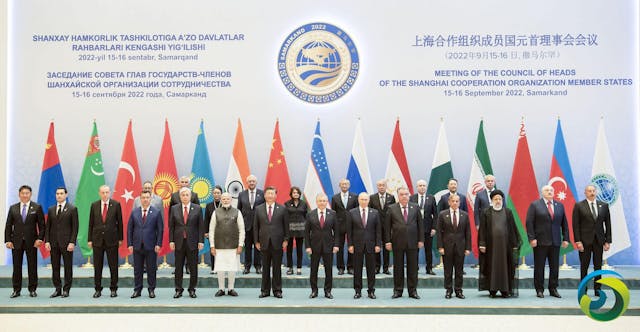
上合組織擴員 「一帶一路」實現突破
不斷擴大的上合組織很可能在經濟方面產生巨大的益處。上合組織推動的多邊主義將帶來具體的經濟成果,因為物流供應鏈正在通過應用大數據和人工智能,跨越所有成員國。中方將在2023年舉行的上合組織發展合作部長會晤上,提出建立中國上合大數據合作中心,由不同成員國的部長參加的構想。中國的「一帶一路」倡議將通過見證上合組織的擴員實現突破,包括從不同成員國獲取能源供應、農業技術交流及加強各行業的合作。換言之,與美國為首的地區組織相比,上合組織未來幾年將成為最大的地區集團之一。
習近平在強調「上海精神」的重要性時,提到要加強上合組織成員國之間的團結合作和相互支持,保持戰略自主和地區穩定,增強經濟活力,擴充成員國。總之,習近平構建「人類命運共同體」的願景,將通過上合組織的區域合作和擴員具體化。
中國參與上海合作組織等區域組織的政治底線可見一斑。習近平在講話中表示,中國反對外國以任何借口干涉成員國內政,表明要防範外部勢力策動「顏色革命」,言下之意,中方反對任何外國干涉內政。顯然,習近平在上海合作組織會議上的講話觸及了中國的國內安全關切。
習近平沒有出席9月15日的成員國領導人晚宴,據報他出於防疫的考慮。習近平抵達烏茲別克撒馬爾罕時,儘管他參加上合組織會議是近兩年來首次,他和中國官員大多數戴着口罩。習近平主席將於11月訪問印尼和泰國──這表明如果新冠病毒不僅在中國而且在其他國家得到控制,中國將逐步向境外遊客敞開大門。
習近平此次出訪並出席上海合作組織會議,也被一些權威人士解讀為他在10月中共二十大前夕展現政治自信,意味他將繼續擔任中國最高領導人。
和平解決台灣問題 仍是大陸堅持立場
最後一點,習近平會見普京時,俄方表示堅持一個中國原則,強調台灣是中國的一部分。新華社報道習近平與普京的會晤,強調了俄羅斯的這一立場,並補充「任何國家都無權做台灣問題的裁判官」。
從中國領導層的表態和立場來看,大陸方面仍念念不忘要和平解決台灣問題,強調與支持「九二共識」的台灣人民對話的重要性,中方的這一立場將繼續下去。10月中共二十大是否會見證修訂《反分裂國家法》或制定新的《國家統一法》,從而為不久將來統一台灣奠定法律基礎,還有待觀察。
如果台灣在不久的將來成為中國在習近平領導下優先解決的問題,那麼,地區安全的影響將是顯而易見的。中印關係可能會好轉,最近雙方在有爭議的邊境地區撤出部分軍隊就證明了這一點。中歐關係將繼續發展,但台灣問題需要歐盟成員國更加謹慎地處理。然而,中美關係將繼續動盪和充滿爭議,主要是因為台灣問題。
總括而言,習近平主席此行出席上海合作組織會議並發表講話,在兩大方面具有重要政治意義。在國家安全方面,中國決心維護國內社會穩定;在地區安全領域,上合組織正在成為一個不斷擴大的組織,能夠也將實現中國構建「人類命運共同體」的目標,促進與其他國家的可持續發展,重點與志同道合的國家結成同盟。堅持多邊主義,堅持不干涉別國內政。中國在台灣問題上的立場是顯而易見的;中國的朋友國家必須堅持一個中國原則──這在一些國家試圖「打台灣牌」、犧牲與中國的和諧友好關係為代價時重申了這一立場。
China and the expanding Shanghai Cooperation Organization: Domestic and regional security implications
Judging from an important speech delivered by the Chinese President Xi Jinping in the meeting of the Council of Heads of the Shanghai Cooperation Organization (SCO) member states on September 16, China has not only attached immense importance to the SCO but also demonstrated its domestic and regional security concerns and strategies.
First, President Xi Jinping delivered a significant positional address emphasizing mutual political trust, mutual cooperation and dialogue, mutual equality and discussion, persistent openness and tolerance, and persistent justice and fairness.
The point on the persistence of equality and mutual discussion among all countries, regardless of big and small states, was particularly important, pointing to perhaps the reason why the Russian President Vladimir Putin revealed that the Chinese side had “concerns” but a “balanced stance” on the Russian-Ukrainian conflicts.
A few pundits were surprised by the position of the People’s Republic of China (PRC); nevertheless, the Chinese stance has remained very consistent. On the one hand, China has not been adopting a high profile approach to commenting on the Russian-Ukrainian conflicts, as Xinhua’s report on President Xi’s meeting with President Putin on September 15 did not really touch on the so-called Chinese “concerns.” However, in the meeting with Putin, Xi might have raised the Chinese “concerns” about the importance of dialogue between countries, big and small, implying that China would like to see peaceful discussions and negotiations between Russia and Ukraine.
The implication for regional security is that China adopts a peaceful approach to handling territorial disputes first, emphasizing the importance of equality and dialogue. This position is consistent with how China deals with other regional security issues, ranging from the dialogue with India on the border issue to the emphasis on dialogue over the question of denuclearization of northeast Asia. In a sense, China wants to maintain a degree of neutrality over the Russo-Ukrainian conflicts on the one hand and the US call for denuclearization of the Korean Peninsula on the other. Reversely speaking, China’s relative neutrality in international disputes aim at portraying itself as a potential arbitrator, mediating in the international disputes in the Russo-Ukrainian conflicts and the call for denuclearization of the Korean peninsula.
Second, the SCO is expanding its membership quite rapidly, signaling the importance of China’s foreign policy attaches to multilateralism and emphasizing win-win situation in international cooperation. China has vowed to provide more financial support to SCO members states in the areas of food aid, cataract surgery, health care delivery, and the training of 2,000 security personnel responsible for curbing drugs-related crime, Internet crime and cross-border criminal activities. Championing multilateralism and inter-states cooperation in sustainable development has remained a major theme in President Xi’s foreign policy – a phenomenon that can be easily seen in his remarks in the SCO meeting.
More states in the world are trying to join the SCO. Iran has already signed a memorandum of understanding to join the SCO, while Belarus is likely following suit. Other states interested in becoming SCO members include Egypt, Saudi Arabia, Qatar, Bahrain, Maldives, United Arab Emirates, Kuwait and Myanmar, which will all likely become the new partners of dialogue in the coming years.
The SCO will likely develop into a large regional bloc with domestic and international security implications for China and all member states. From China’s perspective, the SCO originally helped the PRC curb domestic terrorism that used Central Asia as a political base and transit point. Now, the SCO is developing so rapidly and successfully that it will become a bloc led by China and Russia to counter the Western alliance in the coming years, even though China’s leaders have been emphasizing the importance of “creating a common destiny for the mankind.”
The expanding SCO is likely to have tremendous benefits in economic terms. Multilateralism fostered by SCO is going to bring concrete economic results as logistical supply chains are cutting across all its member states through the usage of big data and artificial intelligence. China has advocated the idea of setting up a big data center between the PRC and SCO with the participation of ministers of different member states in a forum to be held in 2023. China’s Belt and Road Initiative will achieve a breakthrough by witnessing the SCO expansion, including the acquisition of energy supply from varying member states, the exchange of agricultural technologies, and the enhancement of cooperation in various industries. In other words, the SCO is emerging to be one of the largest bloc vis-à-vis the US-led regional organizations in the coming years.
When President Xi emphasized the importance of the “Shanghai spirit,” he referred to need for consolidating solidarity and support among the SCO members, maintaining strategic autonomy and regional stability, promoting economic vitality, and expanding its memberships. In short, his vision of “creating a common destiny for the mankind” is going to be concretized through the SCO’s regional cooperation and expansion.
China’s political bottom line in its participation of regional organizations, like SCO, can be discerned when President Xi said in his speech that the PRC opposes any pretext used by foreign countries to intervene in the domestic affairs of other countries – a remark pointing to the undesirability of creating any “color revolution.” By implication, China is opposing any foreign country to intervene in its domestic affairs. Obviously, President Xi’s remarks in the SCO meeting touched on China’s domestic security concerns.
The President did not attend the dinner of the heads of member states on September 15 on the grounds of considering anti-Covid measures. When President Xi arrived Samarkand in Uzbekistan, he and his officials were mostly wearing masks, although his visit to attend the SCO meeting was the first time in the recent two years. The PRC President will visit Indonesia and Thailand in the coming November – an indication that China would gradually open its door to outside tourists if Covid-19 is under control not only in the mainland but also other countries.
President Xi’s visit to attend the SCO meeting was also interpreted by some pundits as a sign of his political self-confidence in the current run-up to the Party Congress in October, meaning that he will continue to be the most supreme leader in China.
(220916) — SAMARKAND, Sept. 16, 2022 (Xinhua) — Chinese President Xi Jinping poses for a group photo with other leaders of the Shanghai Cooperation Organization (SCO) member states before the restricted session of the 22nd meeting of the Council of Heads of State of the SCO at the International Conference Center in Samarkand, Uzbekistan, Sept. 16, 2022. Xi attended the restricted session here on Friday. (Xinhua/Li Tao)
Last but not the least, during President Xi’s meeting with President Putin, the Russian side said that it supports the one-China principle, and that it adheres to the fact that Taiwan is part of China. Xinhua’s report on the Xi-Putin meeting stressed this Russian position, adding that “no country is entitled to act as a judge on the Taiwan question.”
Judging from the remarks and position of the PRC leadership, China is still keen to resolve the Taiwan question peacefully, emphasizing the importance of dialogue with those Taiwan people supportive of the 1992 consensus. This PRC position will continue. It remains to be seen whether the October Party Congress would witness either a revision of the Anti-Secession Law or an enactment of a new reunification law, thereby laying the legal groundwork for the reunification of Taiwan in the near future.
If Taiwan is going to be a priority issue that will be tackled by China under the leadership of President Xi in the near future, the regional security implication will be clear. The Sino-Indian relations would likely take a turn for the better, as evidenced in the most recent withdrawal of some troops on both sides in a disputed border region. The Sino-European relations will continue to evolve, but the Taiwan issue will have to be tackled by the EU member states more cautiously. However, the Sino-US relations will continue to be rocky and contentious mainly because of the Taiwan question.
In conclusion, President Xi Jinping’s visit to attend the SCO meeting and his remarks were politically significant in two major aspects. In terms of domestic security, China is determined to maintain domestic social stability. In the realm of regional security, the SCO is becoming an expanding organization that can and will achieve China’s objectives of achieving “a common destiny for the mankind,” fostering sustainable development with other states, forming a bloc with like-minded states in its emphasis on multilateralism, and persisting in the principle of non-intervention in the domestic affairs of other states. China’s position on the question of Taiwan is noticeably clear; states which are the PRC friends must adhere to the one-China principle – a stance reiterated at a time when some foreign states attempt at “playing the Taiwan card” at the expense of maintaining harmonious and friendly relations with China.
原刊於澳門新聞通訊社(MNA)網站,本社獲作者授權轉載。



